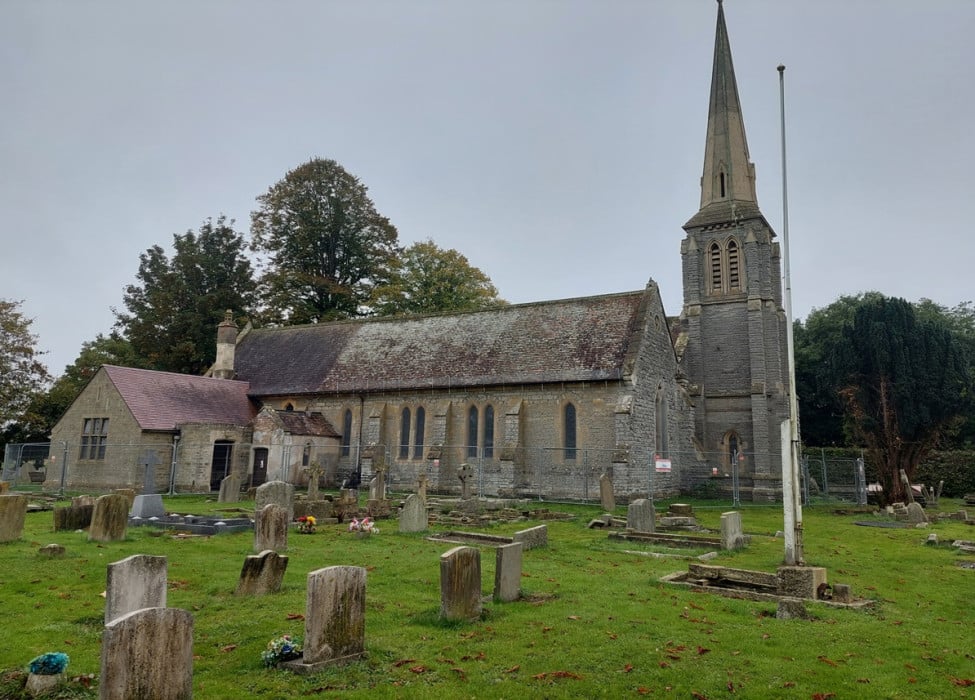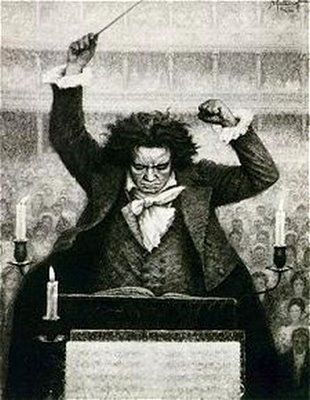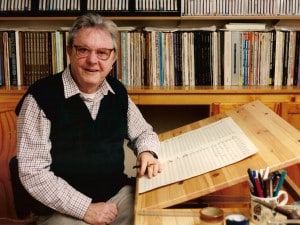Selling off the church where English music came to mourn
NewsOur colleague Clare Stevens, attending the Three Choirs Festival, stopped off yesterday at Twigworth Church to pay respects to Ivor Gurney and to the family of Herbert Howells, who are buried there. Howells spent many hours at the church organ after his son Michael died, contemplating his powerful hymn, All my hope on God is founded. Twigworth Church recently closed as the community could not afford its upkeep. The church is presently up for sale, for a guide price of £100,000.
Clare has shared these thoughts with slippedisc.com:
The 295th Three Choirs Festival has been taking place this week in Gloucester, with a major focus on the music of Ralph Vaughan Williams, marking the 150 th anniversary of his birth a year late because of the loss of the 2020 festival to Covid, which interrupted the festival’s three-yearly rotation between the cathedral cities of Gloucester, Hereford and Worcester. The concert tomorrow will include a performance by the strings of the Philharmonia Orchestra, conducted by Samuel Hudson (Director of Music at Worcester Cathedral) of RVW’s Fantasia on a Theme by Thomas Tallis, a Three Choirs Festival commission that was premiered in Gloucester Cathedral on 6 September 1910, described by the then organist of the cathedral, Herbert Brewer, as ‘a queer, mad work by an odd fellow from Chelsea’. The Fantasia was played as a prelude to a performance of Elgar’s ‘Dream of Gerontius’, now a Festival staple, but then also still considered odd and difficult.
In the audience for that concert, sitting in the front row, was a 17-year-old organ student of Brewer’s, Herbert Howells. He was overwhelmed by the Fantasia, and as Dr Jonathan Clinch of the Royal Academy of Music explained in a lecture at this year’s festival, the experience of hearing the piece in the beautiful acoustic of his local cathedral inspired him to abandon his intention of becoming a concert pianist and resolve instead to become a composer. Which he did, writing mainly for churches and cathedrals but also leaving a substantial body of orchestral and chamber music, and teaching at the Royal College of Music until 1979; he was honoured with a CBE in 1953 and Companion of Honour in 1972.
Howells died in 1983 and was buried in Westminster Abbey, but he left his heart, figuratively speaking, in the churchyard of St Matthew’s Church, Twigworth, a few miles outside Gloucester on the road to Tewkesbury. It is the burial place of his wife Dorothy and also of their son Michael, who died suddenly of spinal meningitis, aged nine, in 1935. The composer was heartbroken, and spent hours and hours in the church over the next few years, playing the organ and mourning his loss. It was Brewer’s successor as Gloucester Cathedral organist, Herbert Sumsion, who had been a chorister at the cathedral while Howells was an organ student, who, as Jonathan Clinch described in
his talk, almost physically coaxed him out of the church and persuaded him to get involved in other musical activities; Howells commemorated his son in the hymn tune ‘Michael’, used for ‘All my hope on God is founded’, another hymn tune called ‘Twigworth’, and larger-scale choral works such as his Requiem, the ‘Hymnus Paradisi’ and the complex motet ‘Take him, earth, for cherishing’, ostensibly
written to mark the death of President Kennedy but suffused with the composer’s personal grief.
Next to the grave of Michael Howells is another significant resting-place: that of poet and composer Ivor Gurney, a contemporary of Herbert Howells who was a Gloucester Cathedral chorister another of their exact contemporaries was Ivor Novello, who went on to fame as a composer of musicals and wrote the iconic First World War song ‘Keep the Home Fires Burning’. Ivor Gurney was mentally unstable even before enlisting to fight on the western front, and although some believed the discipline of army life was actually helpful to him, he never fully adjusted to normal life on his return, had a complete nervous breakdown and spent the last 15 years of his life in a psychiatric hospital in Dartford, Kent, far from his beloved Gloucestershire.
Twigworth Churchyard is situated on a very busy bend on the A38, but you can still visit the Howells and Gurney graves. The church, unfortunately, closed in December 2019 because the parish could not afford to maintain the unstable structure of the building, which is now for sale.
Clare Stevens







Too many old and beautiful churches are now being transformed into restaurants, breweries, and wineries! I guess that’s just the next step in the endless evolutionary process! How true: “You can’t serve both God and Mammon!”
Thank you to Clare Stevens for sharing the above thoughts with readers of slippedisc.com. Much appreciated.
The woke, ignoramus philistine C of E would rather shower cash at DEI targets and atoning for imaginary crimes in previous centuries instead of looking after its parishioners and its priceless cultural heritage. Do you imagine that Welby even knows or cares who Herbert Howells IS?
Very sad.
I played at the last service. The stonework is in a very poor state (the sandstone is crumbling and my black suit came out white) and the location isn’t great (it’s between villages). It’s also got very poor parking on a fast road.
As for the Archbishop, he has specifically mentioned how much he hates the music of Herbert Howells previously.
I do hope someone will save the small organ.
Indeed it is, I do hope these graves will be preserved. There is a campaign https://savetheparish.com/ which aims to divert more money from the CofE machine to local parishes, but it sounds like it’s too late for this particular church.
I imagine the Archbishop is well aware of who Howells is, having been in cathedral ministry for nine years, first as a residentiary canon and then as a dean.
Much as one might agree with the general sentiment, “woke” is more or less the definition of being a Christian: “alert to and concerned about social injustice and discrimination”.
When a church sells out, the specialty of stately churches, you know what follows. MARK 13:2 “Seest thou these great buildings? There shall not be left one stone upon another, that shall not be thrown down.”
It is a lovely place and I have visited it many times. Presumably the graveyard would have to be left as consecrated ground? One hopes that whatever it’s fate it will receive sympathetic treatment.
Looks like a great set from those old Hammer Dracula movies.